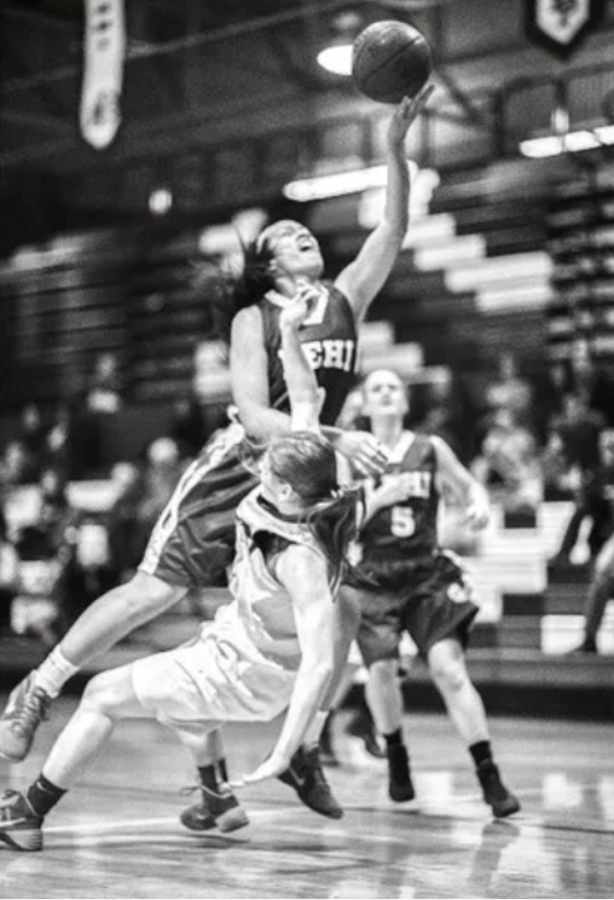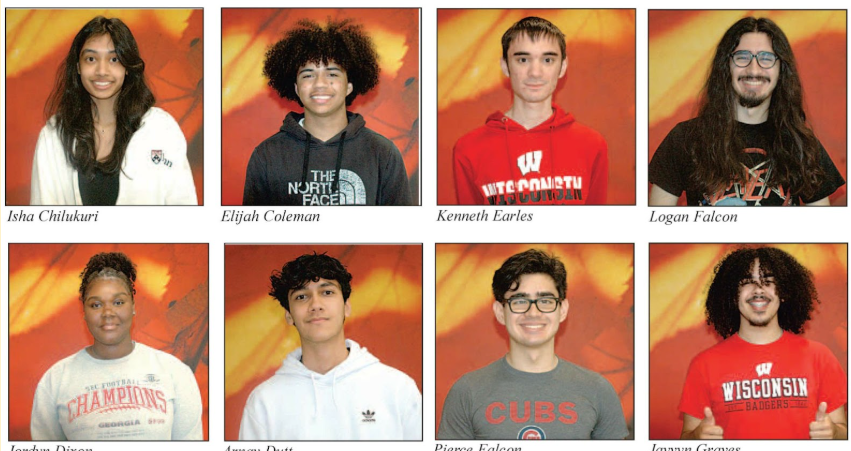The 30 Percent: A Spotlight on Student Athlete Mental Health
When high school athletes feel pressured to devote their entire lives to their sport, the consequences to mental health can become dangerous.
October 28, 2022
“You have to give up everything if you’re serious about this.” That was the advice given to a young Middleton High School (MHS) student-athlete from none other than Khris Middleton, the famous forward for the Milwaukee Bucks.
While this advice is sound for a professional athlete like Middleton, when instilled in the impressionable teenage psyche, it can quickly have detrimental effects on mental health. The athlete, who had aspirations to professional sports, described experiencing “increased stress, lack of confidence and sense of self” after taking Middleton’s advice. They felt like they were sacrificing more than they wanted to give up.
When sports start to consume the majority of a student’s life, they also consume their mind, throwing the always-unsteady balance of a healthy teenage life even more out of proportion.
“Even during preseason training, athletes are expected to wake up early despite staying up late doing homework,” an MHS student-athlete said.
Often, encouraged by a coach or teammate, these athletes will push themselves to the point of physical and mental collapse. A 2022 NCAA study of collegiate-level athletes found 30 percent of surveyed athletes reported feeling extremely overwhelmed, with nearly 25 percent feeling mentally exhausted. But this number isn’t exclusive to college athletes. Mental health issues in collegiate athletes most often originate in high school or earlier, as experienced by Mikaela Brewer of Stanford Women’s Basketball.
In her groundbreaking Global Sports Matters article, Brewer writes,“For the better part of my life, I’ve lived alongside depression and obsessive-compulsive disorder. They shadowed me throughout high school, and followed me … until my freshman year at Stanford.” This means that almost a third of all student athletes, either high school or collegiate, are struggling with their mental health. Left untreated, these athletes are likely to develop depression, anxiety disorders, body image issues or even suicidal thoughts and/or actions.
But what does this 30 percent truly mean? What does it look like? Most importantly, how can we reduce it in our own lives, and those of our teammates, friends and classmates?
One of the many reasons that student-athletes’ mental health can worsen drastically — over the course of a single season or school year — is the intense pressure for perfection that these high schoolers face in every aspect of their lives.
One MHS athlete recalls when their coach asked them after a tough loss, “If you’re not going to give me 100 percent then why are you even here?” While this sentiment is obviously detrimental to an athlete’s confidence on the playing field, it can quickly permeate other parts of their life. Suddenly, this athlete started to believe that anything below a 100 percent in school was a failure, and they began to experience panic attacks and have trouble sleeping. At practices and games, they heard the common mantra of many coaches: “Leave it all on the court.” However, this is often impossible for young athletes to achieve.
It is a troubling fact of high school sports that an athlete’s experience is deeply dependent on the attitude, empathy and connection of their coach. Every athlete interviewed for this article asked to remain anonymous, in part due to fear of appearing vulnerable to a coach. Despite this pressure, a healthy relationship with a coach can relieve this worry and its direct impacts on an athlete’s mental health.
“I had to accept that my coach and I weren’t always going to agree, and that was okay,” one MHS athlete said. “Something that matters a lot to me might not matter to [them].”
Recognizing that neither their coach, teammates or even themself is going to be right or “perfect” all of the time was integral to maintaining their success as a player, student, friend and family member. As many student-athletes discover, maintaining separation between self and sport is easier said than done.
The unfortunate truth of the 30 percent is that there is no simple solution. Even when an athlete realizes their mental health is suffering because of their sport, they often cannot or do not know how to improve it. By becoming more educated and empathetic towards ourselves and the student-athletes in our lives, this number will decrease. This change can start right here, at Middleton High School. As countless studies, interviews, and locker room conversations reveal, there is much to be gained from the experience of being a high school athlete. Balance is possible, but only as long as we remember to keep mental health a priority.
For help on mental health resources, schedule an appointment with your MHS counselor at: https://www.mcpasd.k12.wi.us/o/mhs/page/student-services-appointments
The views and opinions expressed in this article are those of the author(s) and do not necessarily reflect the official policy or position of The Cardinal Chronicle. Any content provided by our journalists is of their opinion and is not intended to malign any religion, ethnic group, club, organization, company, individual or anyone or anything.














